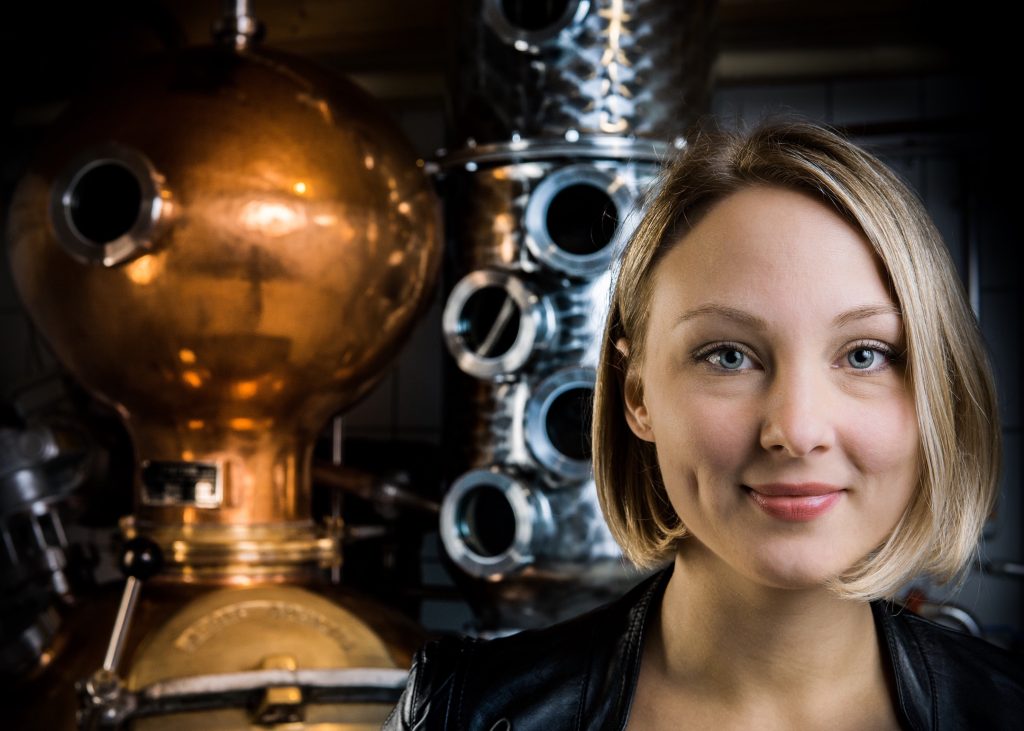
Hello Franziska,
Do you remember the first alcohol you tried ?
Yes, I do. I was far too young to mention and we kids mixed alcohol like Vodka or Asbach with coke or orange juice in order to drink it somehow without tasting the alcohol too much. Obviously this was not about enjoying a good drink but just about being cool and get drunk.
What happened then ?
Well, my palate evolved, especially during my stay in Italy for almost 7 years. Even though what I work and studied there wasn’t completely fulfilling, this is where I learned to enjoy good food and also drinks and I learned to regulate myself, too. You know, as a teenager, high spirits are not allowed to consume, and if you do, you normally cannot enjoy it. Alcohol is poisonous for our body (at least in high consumption) and so there’s a natural rejection: kids don’t even want to smell concentrated alcohol. However, it also carries flavour. And so, in order to be able to also enjoy alcoholic drinks, your palate goes through an evolution and tthat happened while I was there. And I also understood better what my parents did at home. I understood why they work the way they did. They were running a distillery in Germany. And the more I thought about it, I see that running a distillery was the perfect match. You have the contact with nature, with the countryside, you have agriculture. You also have a creative part. And you also have the marketing, the contact with people.
So your parents were having the distillery…
Yes, now I’m the fourth generation but I am the first who is making a living from it. Before it has always been something they did on the side. That was yes a lot a work for a nice hobby. They were farmers and when you also had a distilling activity then you really had no waste. It made sense.
What is your definition of distillation ?
Distilling a spirit means to me to extract its essence, its inner being.
And how would you define a good distiller ?
To me a good distiller has to know know much more than how to technically run a distillery. He or she rather is a lover and friend of nature. He or she respects the fruits’ characters and these are possibly grown by himself/herself. He/she loves to be outside, is passionate about handcraft and can’t wait to try new things again and again.
How did you become a distiller ?
When I came back to Germany with the idea of takeing over the distillery, my father couldn’t believe it as he was wondering why I would leave a well paid confortable job for a distillery that never brought them money. But he was also happy that someone was going on with the activity. My sister and brother were not interested. I learned a lot from him. And I also studied how to become a spirit sommelier.
What is the most difficult when you are distilling ?
That it is quite a physical job, there is a lot of heavy lifting. So this is sometimes difficult. The most crucial point is certainly to separate head and tail.
What is the most beautiful when you are distilling ?
The most beautiful is the moment, when I distill a new mash. This is where the truth comes out and every time it’s different. Mostly I start distilling at 6am, so it’s about sunrise when I go out on the fresh air (in order not to be disturbed by other flavours) and try the first drops and obviously there is also this very special atmosphere. In this moment I’m just on my own and that’s great! You’re getting an impression how this is gonna be this time.
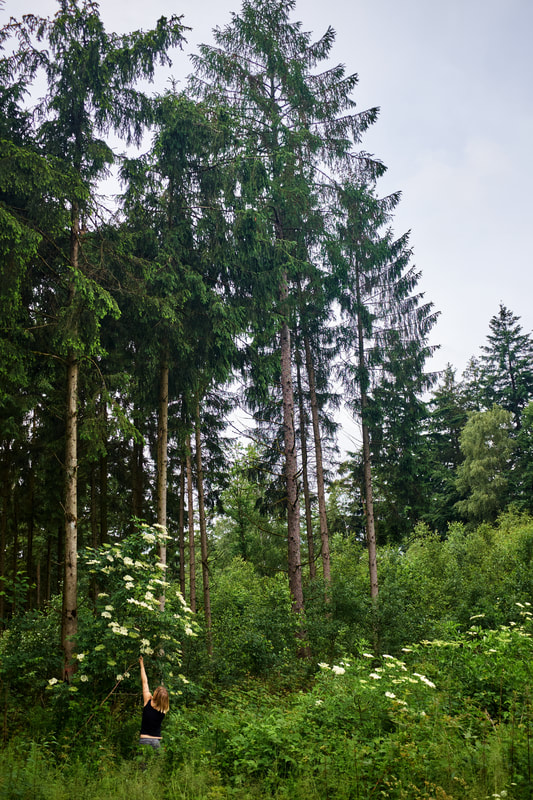
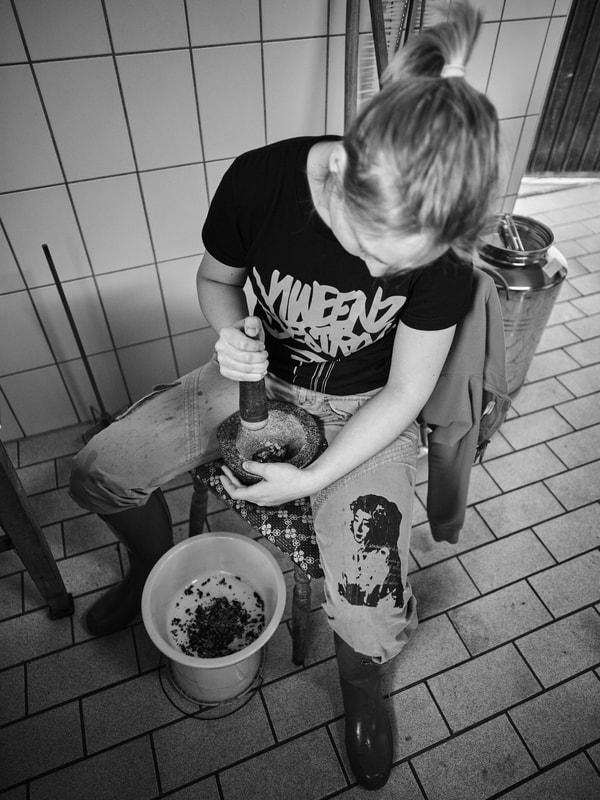
How to become a distiller ? What would you suggest to someone who wants to become a distiller ?
The best thing, that could possibly happen, is to find an experienced distiller who is willing to tell you everything he knows about his life as a distiller. I am very lucky, because my father taught me. In school you learn a lot but also a lot of theory, but in the end it’s only practise that will teach you. And what is disappointing is that not so much research is done today in those schools for example, what is officially and publicly available comparing to the research made in the wine research the only one having good research are used company. Or stills makers such as Karl or Holstein, for distilling research. They always working with bigger companies though so this knowledge is not available.
Comparing with the wine it is like the wine research from the seventies.
Would you suggest the same to a young girl or a young boy ?
Did it ever matter to you to be a woman or was it actually positive ? Because in your branding you put an emphasis on your biological gender when you named yourself “die brennerin” or “spirits sommelière”?
People imagine distillers as being a guy, a strong men, tall. Somehow specially when you distal fruit spirits – fruit spirits have a quite old image. and quite male.
as far as I am concerned I knew I had to change something in the distillery because when I came back from Italy I knew I wanted to live from this work. I realised in the education of spirits sommelier that it won’t be possible if I don’t change pricing. My father had really good spirits already won medals, etc but he sold them with a price that made him even lose money. Because it was like a hobby. He never calculated the real costs and expenses. So when I started I knew I needed a new image and somehow I needed attention from people and as there are not so many women distiller -yet, because actually they are coming- in the end it became my marketing instrument pointing of me being a woman.
Isn’t also showing that there are few women now otherwise it couldn’t be what is making the difference.
Yes, but that was also working with rebranding the products, creating my products.
And other wise, yes, distilling is a handcraft that nowadays can quite easily be done also by women. Of course, it’s still an advantage if you’re stong enough to lift also heavy weight, but if you’re not, there is technnique that might help you. However, in the beginning being a young women distilling, there was another problem: people sometimes had their prejudices, telling that maybe it’s not really me distilling, but only selling my father’s products. Today, people know better and there’s lot’s of respect for my work – especially because I’m a woman doing a job that they normally associate with a man’s work.
What has surprised you most recently in the industry lately?
Well, it’s not really surprising, but sometimes I’m quite outraged of how shamelessly some people launch supposed ‘craft spirits’ with nothing in it, but neutral alcohol, artificial flavour and sometimes even sugar or colour added. That’s a trend, that’s very confusing for average consumers that simply might not distinguish between high quality products and good marketing.
What would be your definition of craft spirits?
Today it is difficult because every one is coming with craft spirits. And it is hard to make a difference for normal average consumers. You can’t tell from a packaging. Storytelling can be deceiving.
To me a real craft spirit can only be produced in small batches by someone who has profound knowledge of distillation and raw materials. It’s made out of real fruits and herbs without any artificial or natural flavours or colours added. (also natural flavours can easily be bought as extracts for example).
If this is all about small batch, may I ask you if, as soon as a company owned by Diego for example, produced a 200 liter batch only if they couldn’t be put in that craft category?
This is true. I have been asked by big companies to make craft spirits for them. But I said no. I feel this is a way to resist and still making craft exist.
But that shows something else. Earlier you told me you will ask me about what I think is missing in the world of spirits.
What is missing in the world of spirits ?
A deeper sense of comprehension.
.. of what spirits are and made of?
Yes, of what they are and how they are produced. I’d love to see all spirits (and especially traditional fruit brandys) one day understood and appreciated just like wines are nowadays. Good wine is made by farmer families. Every year’s harvest and wines are different. People understand that it’s a product depending on climate and nature and the winemaker’s philosophy. Some people already see spirits, especially whisky, the same way, however most do not. They go to a supermarket and buy a pear brandy and they want the same taste every year.
Unfortunately nowadays the world of spirits is highly influenced by the spirits industry and their products. I know that my imagination is an utopia, but as a spirits sommelière I, at least, try to transmit also to average consumers a deeper comprehension of what they are drinking. There are thousands of high quality traditional distilling farmers in Germany, everyone of them limited to produce only 300l of alcohol per year – and the percentage of people knowing of them is minimal.
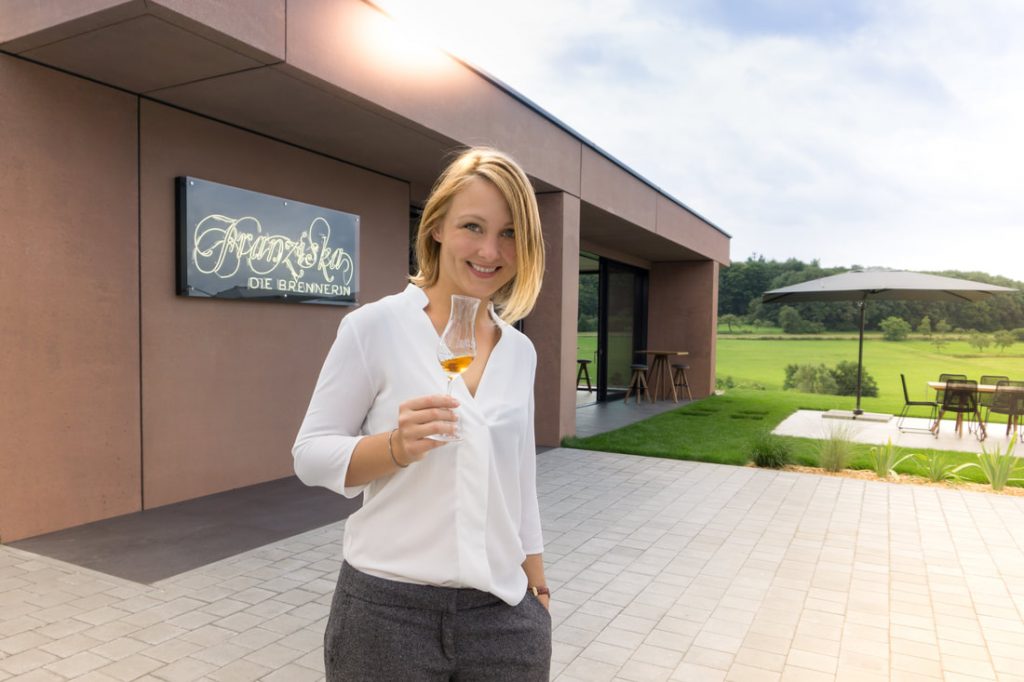
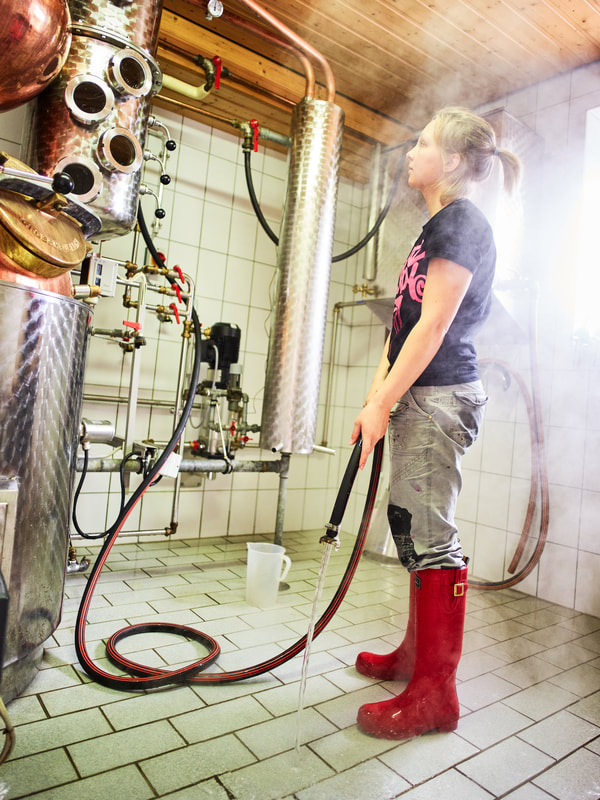
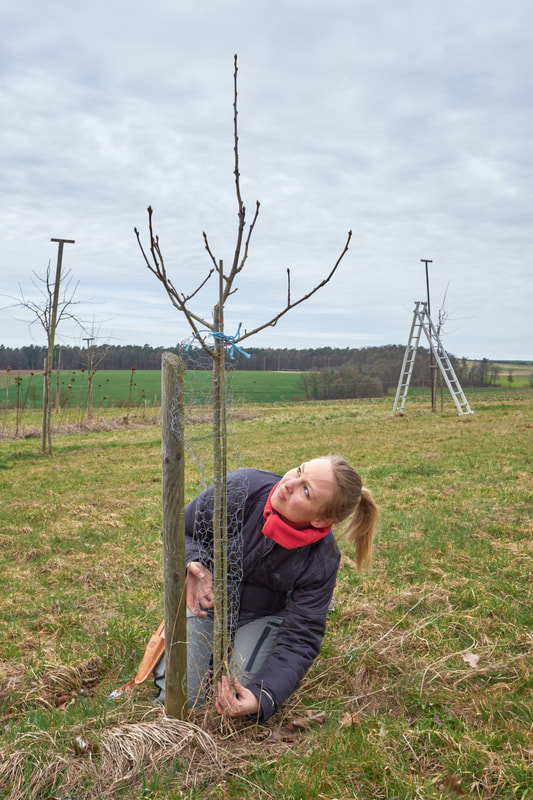
And last question, as I know you need to leave soon, what do you think of this trend of alcohol-free alcohol and the low alcohol trend?
Honestly I see it around, and people talking about it but honestly , I don’t see the sense in it.
It’s positive, that more and more people pay attention to a healthy way of living: they don’t want to consume too much sugar, or meat or raffinated carbohydrates. That’s good. But a healthy way of living normally means a good balance in alimentation. In fact, there are also diseases that can be prevented by a moderate consume of alcohol. So, it’s true: it depends always on dosage if something turns us sick – same for bad nutrition as for alcohol consume.
Then, if somebody consumes 0,25 l of a low alcohol wine or a 0,10 of a normal one – it’s always about dosage.
And if someone for some reason really is not allowed or does not want to drink alcohol: why not drink something completely nonalcoholic? There are such a wide range of non alcoholic drink why to you need a dealcoholised spirit.
Alcohol consumption is deeply in our culture and I don’t believe this should condemned. However I stand in for conscious consumption.
How does it impact you as a spirits high proof spirits maker ?
This no alcohol / low alcohol trend hasn’t impacted on me at all until now. And also in future, I don’t believe this will influence my business that much, since I’m a very small distiller and I’m serving a niche of spirit lovers. I’m a friend of high abv. drinks and to me, as to many others, it’s a type of luxury pleasure. You don’t need spirits for live, as you don’t need caviar. However I could imagine, that for alcohol industry this trend could mean loss in sales if they don’t go with the trend and offer non alcoholic spirits. It has an impact for the industry but does it have an impact for small distillers?
In fact, it just seems as if they’re starting this trend themselves ? !! 🙂
Why not checking her website now?

